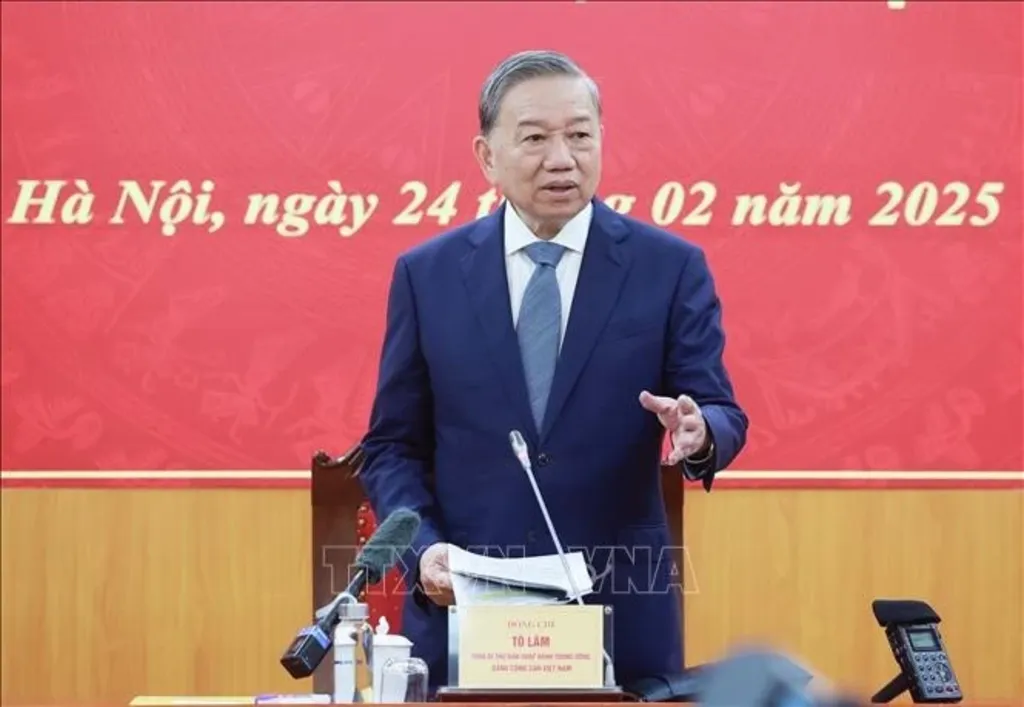 |
| Party General Secretary To Lam addresses the working session with the Party Central Committee's Commission for Policies and Strategies on February 24__Photo: VNA |
The Office of the Party Central Committee has announced the conclusions of General Secretary To Lam following his working session with the committee’s Commission for Policies and Strategies.
During the session on February 24, Lam outlined ambitious economic growth targets of at least 8 percent for 2025, laying the groundwork for double-digit rates in the coming years. He also provided orientations for digital asset and currency management in Vietnam.
The Party chief commended the commission for its report on measures to achieve economic growth of at least 8 percent in 2025, setting the stage for double-digit expansion thereafter, and agreed with 10 solutions outlined in the report.
He emphasized the need to engage all economic sectors, businesses, and citizens in socio-economic development, making contributions for national growth. The leader stressed that all institutions, policies, and mechanisms must be designed towards this goal.
In order to promote fast and sustainable growth, Vietnam's economic strategy must promote reforms in both supply side and demand side, he underscored.
Regarding supply, the Party chief pointed to the need to strongly accelerate institutional reforms and improve the business environment, reduce administrative processing times by at least 30 percent in 2025, cut business costs by at least 30 percent, particularly in customs, regulatory compliance, and informal fees, remove at least 30 percent of unnecessary business conditions, and position Vietnam among ASEAN’s top three investment destinations within the next 2–3 years.
It is necessary to develop a specialized legal framework to support the rapid evolution of the digital economy, financial technology, AI, platform economy, e-commerce, and special economic zones.
Alongside, there is a need to establish regulatory sandboxes for emerging technologies and introduce tailored legal frameworks for special economic and technological zones, including preferential tax policies and unique dispute resolution mechanisms, while improving land and real estate market policies to unlock investment and urban development, building a national digital map for land planning and pricing, and establishing a national housing fund to support affordable housing in major cities.
General Secretary Lam also directed the implementation of open financial policies to develop Vietnam into a major international financial center and a logistics hub, along with the creation of a "National Investment Single Window" to attract foreign investors.
Particularly, he stressed the need to tackle environmental issues, particularly air pollution in Hanoi and Ho Chi Minh City.
The leader sketched out policies on human resources development, decentralization and measures to deal with an aging population.- (VNA/VLLF)









